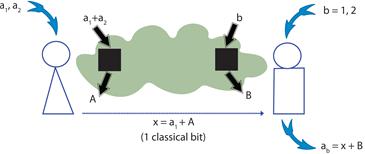 Why do we read those blogs, email, chats, twitter, voice mails, newspapers, magazines, etc. etc. Presumably there is some logic to that. Some motivational schema. There’s money in the answer to this question. Will my students pay attention? Will my novel be a hit? Will my newspaper survive? So, surely this question has been extensively studied? I can think of a few examples. There are handbooks on teaching, writing, advertising that all look into the question.
Why do we read those blogs, email, chats, twitter, voice mails, newspapers, magazines, etc. etc. Presumably there is some logic to that. Some motivational schema. There’s money in the answer to this question. Will my students pay attention? Will my novel be a hit? Will my newspaper survive? So, surely this question has been extensively studied? I can think of a few examples. There are handbooks on teaching, writing, advertising that all look into the question.
Here is an another attempt, coming at this from the currently popular puzzle of what might stop the free-fall of newsprint and it’s codependents (i.e. investigative reporting, PR, local advertising, etc). He blocks out four reasons why we expend resources to accumulate new information:
- Entertainment – is everybody animated now?
- Deciding – in a yellow wood?
- Staying Expert – sort of a service contract model i guess
- Paid To – diagnosing, trained, flattery?
These are not independent. For example, the author of a highly technical paper targeted at a community of experts will often include a significant amount of entertaining content since he knows that makes the material more memorable or more viral. But one reason it’s clear these are disjoint categories is how when your goal is drawn from one category it can be irritating to have content from one of the others popping up.
I found it disconcerting and then amusing that what I’ve labeled “paid to” he named flattery.
I’m not particularly comfortable with this framework. Why do fans pay attention? But, it is fun to compare it various other schemes: story templates, selling scripts, etc. For example in the typical fairy tale our hero is cast out of one’s home, goes on a quest, and then returns home. That has all four elements. For example when we are influenced by the use of social proof in a situation that has elements of deciding; but helps to highlight how there is a social aspect to all four. When we tell a story by opening with a mystery to hook our readers, a standard bit of teaching advise which I used in this posting, then we are pulling on a few cords from all four. And where does the phrase “breaking news” fit into that framework?
And what’s up with cliff hangers? People do pay to have those resolved. Did Ben find a job yet? Tune in tomorrow!
Given the list of media/services that you present in your 1st sentence, I take issue with the idea that the consumptive activity surrounding those elements are essentially about ‘expend[ing] resources to accumulate new information”.
I assert the primary motivation for engaging in this type of consumptive activity is not information accumulation, but distraction / momentary relief from responsibility.
& on that score, I posit:
The healthier a human is, the less likely they are to need / choose these types of distractions. Put another way: the coefficient of personal utility on this topic is inversely proportional to individual health. The better the health, the lower the utility… The healthier the human, the less need to disengage from responsibility.
Harrumph. Guess I better get back to work.
Widmar – Good point. Some would call that entertainment, but I agree there is an entirely functional purpose to information gathering (attentive behaviors) which is to distract one from the burden of more – ah – responsible activities.
We Puritans dial that one in as generally unethical, but I assure you, all the above can be treated as having their ethical rheostat.
And yes, you should get back to work.